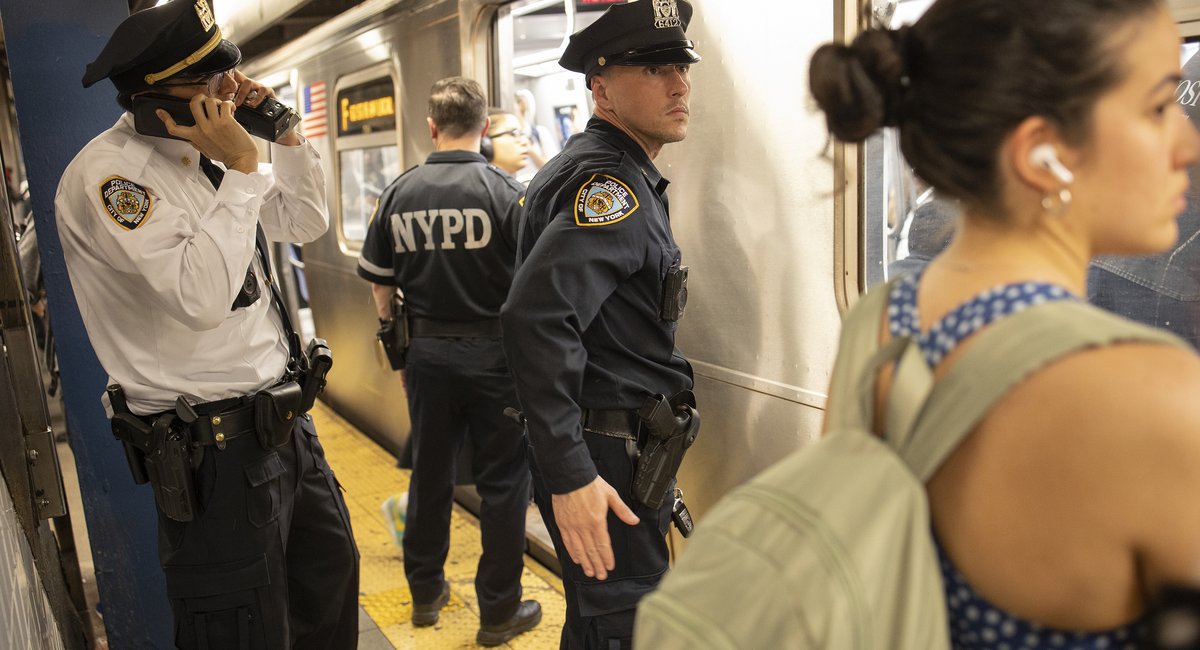The vast majority of MTA subway and bus workers say they were harassed or assaulted on the job during the pandemic, according to a new study published in the Journal of Urban Health on Wednesday.
The study was based on surveys filled out by 1,297 public-facing transit workers who were members of Transport Workers Union Local 100 between 2020 and 2023. Women were far more likely to respond to the survey than men. The MTA employs more than 50,000 transit workers.
Still, 89% of transit workers in the small survey group reported being victims of harassment or assault.
“Physical assault was more frequently reported by female bus workers, while sexual assault or harassment was more often reported by female subway workers,” the report’s authors at NYU’s School of Global Public Health wrote.
The authors acknowledged that “the results of this study cannot be considered representative of the MTA worker population overall.” But they argued that the high number of alleged attacks illustrated the need “to better understand the frequency and risk factors related to this violence and harassment, especially for female workers.”
“They’re really the kind of incident that you might get exposed to that might lead to long-term mental health impacts, even like [post-traumatic stress disorder],” said NYU professor Robyn Gershon, coauthor of the report. “They’re so egregious. It begs the question: Why were they a target? Why is it happening? And what can we do?”
Researchers found that 40% of the assaults described in the surveys were carried out by people who were “acting erratically” and likely had mental health issues. The riding public only accounted for 11% of them.
Gershon said efforts like the MTA’s SCOUT program, which seeks treatment for the mots mentally ill people in the transit system, appeared to be effective methods of addressing the issue and should be scaled up.
“These workers are so hardworking and they tell us when they leave in the morning, sometimes they don’t know if they’re going to come home at the end of the day,” said Gershon. “And that all started with COVID. Nobody should leave in the morning and not believe fully that you’re going to be back to see your family at the end of the day.”
While ridership dropped precipitously during the pandemic, assaults remained high. In April 2020, ridership was just 8.3% of its level in the same period the previous year.
In a letter to NYU, New York City Transit Interim President Demetrius Crichlow said the study was a “disappointment” for implying that the small survey sample was representative of the entire workforce. He wrote that it raised “serious questions about quality assurance and the university’s commitment to fairness and accuracy in academic research.”
Crichlow added that the MTA closely tracks all assault and harassment incidents and has been pushing New York state to make attacking any MTA worker a felony.
The MTA has acknowledged that assaults on bus drivers have worsened to the point that drivers are no longer required to force riders to pay fares. This policy has led to a spike in fare evasion on buses, with nearly half of all riders not paying, according to agency data. The MTA has said it’s trying to combat the trend by dispatching inspectors on buses to check whether riders paid.
This year, the transit agency has rolled out several initiatives aimed at improving worker safety in the subway.
Gov. Kathy Hochul ordered a surge in police and National Guard members after several killings in the subway at the start of 2024. The MTA has also increased the number of private security guards near turnstiles and exit gates and is continuing to install cameras inside every subway car. Any new buses purchased by the MTA will be equipped with a fully enclosed plastic cockpit to protect drivers.
The transit agency argues that those efforts are working. There were 62 felony assaults on transit workers from January through June of this year, compared to 88 during the same period last year, MTA data shows. There were also 345 fewer instances of worker harassment compared to the same time last year.
Still, the MTA wasn’t able to provide a breakdown of how many women employees were harassed and assaulted compared to men, or a breakdown of subway workers compared to bus workers.
“It’s crucial to consider the context in which this data was collected,” TWU Local 100 President Richard Davis wrote in a statement. “The pandemic was an unprecedented time that exacerbated many existing challenges within the transit system, including safety issues. The study’s findings should be seen as both a reflection of this unique period and as a broader indicator of ongoing risks that need to be addressed.”
